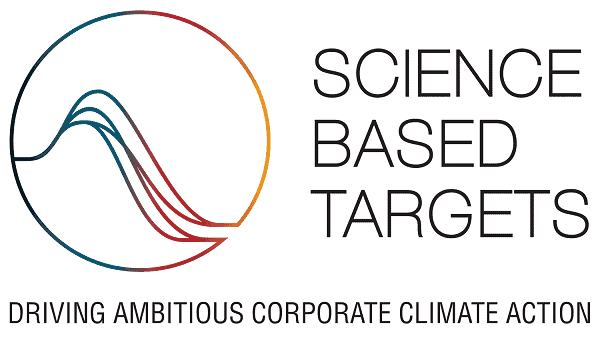環境のポリシーステートメント
当社は、健全な環境の重要性を認識しています。当社は天然資源を保護し、サステナビリティを改善することに取り組んでおり、また世界中のすべての施設で事業を展開する当社が運営するコミュニティの生活の質に貢献します。当社の環境方針は、サプライチェーンにおける行動を推進するための誓約として、サプライヤーにも適用されます。この取り組みの一環として、世界中で以下のことを実践しています。
- 環境を保護するすべての法的要件を遵守します。
- 当社工場およびサプライヤーに対する環境責任の基準を定めたResponsible Business Alliance(責任ある企業同盟)の統一行動規範に従います。
- 環境事故のリスクを軽減するため、従業員にトレーニングを提供しています。
- 当社工場は、国際標準化機構(ISO)フレームワークに基づき、効果的な環境管理システムのための14001および温室効果ガス(GHG)排出量の設計、収集、検証のための14064の認定を受けています。
- 世界中の企業や政府による環境情報開示と行動を促進する主要な組織であるCDPに、温室効果ガスと水に関連する情報を提出します。CDP の評価結果はウェブサイトで開示されます。
当社の環境方針は、この環境方針の策定と実施を担当する全社的なAmkorサステナビリティチームの上級管理職によって定期的に見直されています。
温室効果ガス排出量の削減
私たちは、環境への責任と長期的なビジネスレジリエンスの重要性を認識しています。当社は顧客、投資家、従業員など主要な利害関係者と環境問題に関する協議を続けており、温室効果ガス排出量の削減は利害関係者にとって最優先事項であり続けています。

Science-Based Targetsイニシアチブ(SBTi)に従い、2050年までに全社的なネットゼロエミッションを達成することを約束しています。このネットゼロ目標は、パリ協定の目標に沿って地球の気温上昇を1.5°Cに抑えることを目指すSBTiにより設定された厳格な基準に沿ったものです。
SBTiによって検証されたAmkorの科学的根拠に基づくネットゼロ目標には以下が含まれます。
- 全体的なネットゼロ目標:Amkorは、2050年までにバリューチェーン全体で温室効果ガス(GHG)排出量をネットゼロにすることを約束します。
- 短期目標:Amkorは、2033年までにスコープ1および2のGHG排出量を2022年比で55%削減することを約束します。また、Amkorは、購入した商品・サービスおよび資本財を対象とする排出量に関して、サプライヤーの80%が2028年までに科学的根拠に基づく目標を設定することを約束します。
- 長期目標:Amkorは、2050年までにスコープ1および2のGHG絶対排出量を2022年比で90%削減することを約束します。また、Amkorは、スコープ3のGHG排出量を、同期間内に付加価値100万米ドルあたり97%削減することを約束します。
ネットゼロ目標を達成するための主要な取り組みでは、エネルギー消費を再生可能エネルギー源に移行すること、供給業者と協力して当社のサプライチェーンにおける二酸化炭素排出量を削減することなどを実施する予定です。
当社のエネルギー削減の取り組みは、GHG排出量の削減に貢献しています。私たちは、製造施設のエネルギー効率を改善するために、プロセスの最適化を実施する機会を引き続き模索します。
水資源の保全
水は当社の製造に不可欠な資源であり、当社の事業活動が水資源に悪影響を及ぼす可能性があることを認識しています。私たちは、水資源の保全、有害物質とそれに伴う水質汚染の最小化、事業を展開するコミュニティの淡水生態系の保全、持続可能な水利用のための慣行の継続的な評価と改善に取り組んでいます。
当社の水に関する目標は、2018年から2020年の当社施設における年間平均取水量と比較して、2030年までに水使用量を20%削減することです。当社の製造施設では、製造工程に必要な水を再利用できる水リサイクルシステムを引き続き運用しており、水の使用効率を向上させることで水を節約する新たな機会を常に模索しています。
当社は、国際的なフレームワーク(ISO 14001)、広く採用されているCDPの手法およびRBAの業界標準に準拠して水管理の実践により、水管理の規制要件を上回っています。
私たちは、さまざまな環境要因が水の利用可能性と水質に複雑に影響を及ぼす可能性があることを認識しており、世界資源研究所(WRI)のAqueductツールを使用して、世界中の施設で水関連のリスクとストレスを継続的に評価しています。
私たちは、きれいな水を得る権利は基本的人権であると考えており、従業員と当社が事業を展開するコミュニティで、安全に管理された水と衛生(WASH)の実践を促進することを約束します。
廃棄物管理
私たちは、世界中の施設から発生する廃棄物を最小限に抑え、持続可能な廃棄物管理の実践を促進することに取り組んでいます。廃棄物の分別、リサイクル、再利用に焦点を当てた廃棄物削減プログラムを実施しています。
当社の目標は、2018年から2020年までの当社施設からの年間平均廃棄物(有害廃棄物、焼却廃棄物、リサイクル廃棄物、埋立廃棄物)量と比較して、2030年までに廃棄物の発生量を20%削減することです。
私たちは、製造工程で発生する廃棄物を継続的に監視し、削減とリサイクルの戦略を最善に実施できるようにしています。その一環として、材料をリサイクルし、埋め立て地での廃棄物を可能な限り最小限に抑えるよう努めています。
安全衛生方針
当社は従業員の健康と安全の重要性を認識しており、世界中のすべての施設で安全で健康的な労働環境を提供することに取り組んでいます。本ポリシーは、当社のサプライヤーにも適用されます。
私たちは、当社の活動が従業員の健康と安全を守る方法で行われることを保証します。これを実現するため、以下を実践しています。
- 世界中のすべての拠点が、効果的な労働安全衛生マネジメントシステムとして、国際標準化機構(ISO)のフレームワーク45001の認証を受けています。
- 当社は、事業を展開する各国の安全衛生関連法令を遵守しています。さらに、当社は健康と安全に関するベストプラクティスの業界標準を含むResponsible Business Alliance(RBA)行動規範を採用しています。
- 当社は、業務上の傷害や疾病を監視し、改善の機会を特定し、従業員の健康と安全を向上させるための対策を実施しています。
- 当社は、機械の安全な操作、危険物質の特定、リスクを軽減するための管理の実施など、保健衛生のさまざまな側面について従業員に定期的な教育を実施しています。災害の種類に応じた緊急事態を設定し、定期的に訓練を実施し、事故の予防と万一の被害の最小化に努めています。
- 当社は、世界中の拠点および主要サプライヤーにおいて、安全衛生関連の慣行について定期的なリスク評価を実施しています。当社のリスク評価ツールには、RBA自己評価アンケート(SAQ)が含まれます。さらに、当社はサプライチェーンにおける健康と安全関連の慣行を評価するために、厳選された新規および既存のサプライヤーに対して定期的な監査を実施しています。
